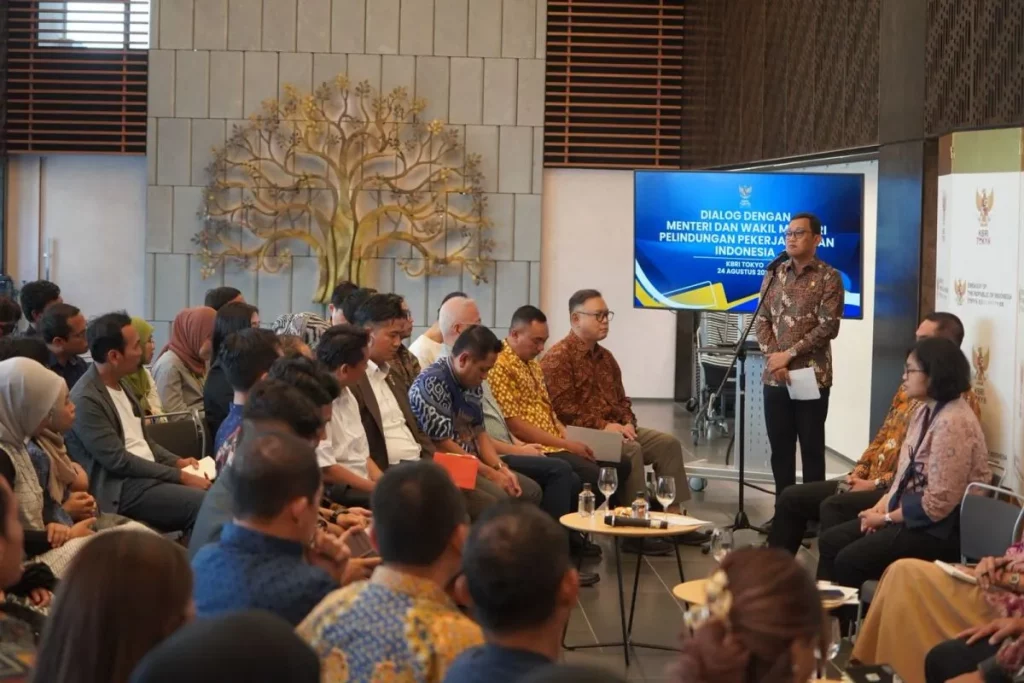The Minister for the Protection of Indonesian Migrant Workers (P2MI) Abdul Kadir Karding has shared President Prabowo Subianto’s programs with Indonesian migrant workers during a meeting at the Indonesian Embassy in Tokyo, Japan, on Sunday, August 24. The discussion focused on welfare, education, and protection for workers and their families.
Karding explained that President Prabowo has a strong commitment to helping the people, especially those from low-income backgrounds. He said the President’s programs are designed to open wider access to the economy and education while breaking the cycle of poverty in villages. He stressed that these initiatives would also benefit the families of Indonesian migrant workers abroad.
One of the key programs highlighted was the strengthening of village cooperatives. According to Karding, this step will make it easier for local producers to directly connect with companies without going through long and complicated bureaucracy. “Now the process has been made simple, fast, precise, efficient, and affordable,” he said. This program is expected to create faster economic growth in villages where many workers come from.
Another important initiative is the Sekolah Rakyat (People’s School) program. This free boarding school will provide full educational support for children from poor families. The government will cover tuition, accommodation, and extracurricular activities. Karding emphasized that the aim is to ensure children from disadvantaged families can build better futures. “If their father is a pedicab driver, their children should still have the chance to pursue successful careers, even overseas,” he said.
Why are these programs important for migrant workers? The answer is simple: they not only protect the workers but also secure the future of their families. By improving education and community opportunities, the cycle of poverty can be broken. This means that children of migrant workers have a better chance at success, which also supports Indonesia’s long-term development.
Karding also reminded the community of the huge contribution migrant workers make to Indonesia’s economy. Each year, they bring in about Rp253 trillion, equal to nearly US$15.5 billion, in foreign exchange. For this reason, they are often called “heroes of foreign exchange.” He added that the government must not only praise them with words but also give real protection and empowerment.
The establishment of the Ministry of P2MI shows the government’s strong commitment to migrant workers. It is expected to improve the placement of skilled workers overseas, ensure their rights are protected, and help them gain new experiences. Karding said that working abroad is not just about sending money home. It also allows migrant workers to bring back skills, work culture, and new perspectives that can contribute to Indonesia’s growth.
This meeting in Tokyo highlights how Indonesia is working to build stronger support systems for its citizens abroad. By focusing on welfare, education, and empowerment, the government hopes to make life better for both migrant workers and their families at home.

